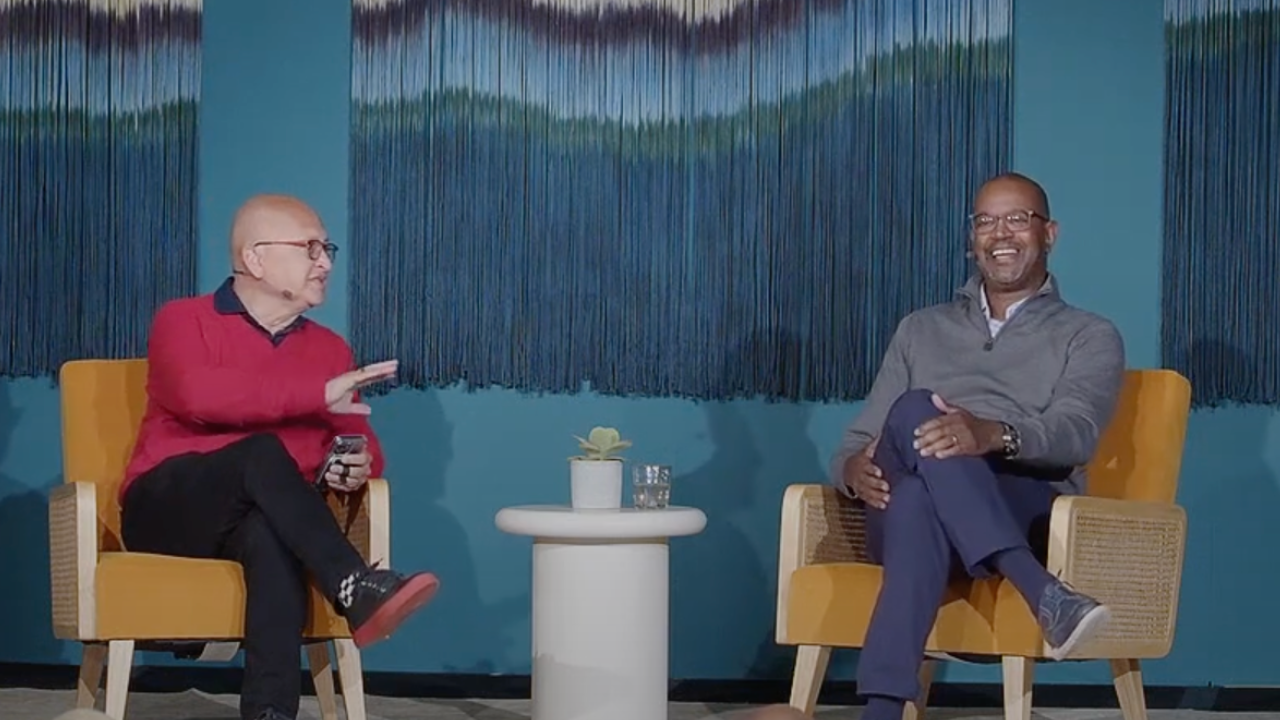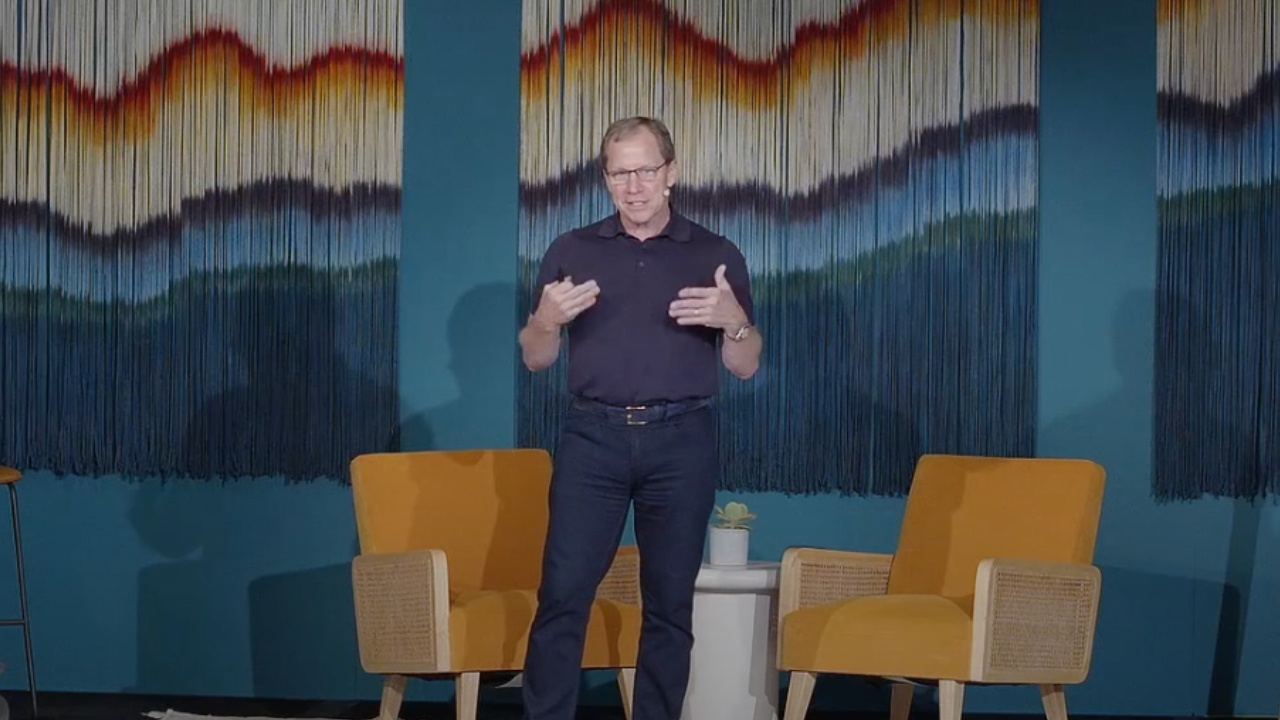On January 11, 2023, Rob Connelly, Senior Leader Network member and Chairman & CEO of commercial-grade kitchen equipment manufacturer Henny Penny, spoke with our Partner Success Manager Quennie Potes about how to ensure purposeful businesses are built for the long-term. Rob shared both abstract ideas and concrete examples that can be applied to any business, regardless of size.
Rob and Quennie’s energetic discussion had four main ideas for companies to ensure lasting prosperity for all stakeholders.
Be methodical when making decisions
One of the most important ways to ensure long-term success is to think long-term when making crucial decisions. This might seem obvious, but often one good quarter can encourage executives to rapidly increase new hiring before seeing that revenue sustained for an extended period of time. These premature decisions can set the foundation for financial struggles down the line. “It’s a combination of being intentional about trying not to hire too fast, being financially strong, and being in a position where you can withstand bumps without [passing that hardship onto] your people,” Rob shared.
Other thoughtfully considered decisions contribute to Henny Penny’s overall success, which allows them to then care for their employees. The team weighs the long-term effects of decisions they make and pursue options that set up success down the road. “The thriving company is so critical. You can’t lose sight of the fact that you need to have a thriving business to make everything else possible. We can’t just have an environment that’s a great place to work but our business is declining… A thriving business provides the opportunities. It provides the resources,” according to Rob. Using this frame for the company’s decision-making process is part of the reason Henny Penny has not had to lay employees off at any point during its 66-year history.
A thriving business provides the opportunities. It provides the resources.”
Don’t hire jerks
Rob views capable employees as a key pillar of Henny Penny’s success. He subscribes to a frank motto: “Don’t hire jerks.” Some companies, Rob noted, are willing to hire people with toxic personalities if their performance makes up for that toxicity. That’s not a compromise Henny Penny is willing to make, and it reflects in their high retention rates and employee satisfaction ratings. Rob also likes to keep an eye on employee referrals as anecdotal job satisfaction data. “A lot of employees came here because we have friends here. Normally if you bring a friend to a company, you’re happy with that company,” he shared.
Because Henny Penny wants to ensure they “don’t hire jerks” employees are given a significant voice in the hiring process. Interviewees will have panel discussions with multiple employees at a time. While some team members actively engage the prospective hire, others might pipe in only on occasion. This is fine, as long as the whole group is able to share their thoughts. In addition, some employees prefer taking a back seat in the process. These employees are often more observant and perceptive of small things that might raise flags. One of the most important aspects of the interview is before it even starts, however. It’s always noted when interviewees are rude to the receptionist or any other people they meet on the way in, as this reflects poorly on the person’s ability to work well with the entire team and treat everyone with respect.
Provide for employees’ wellbeing
Because employees are key to Henny Penny’s success, it’s likely unsurprising that Rob looks out for their wellbeing. In 2020 Henny Penny created an on-site clinic to help make healthcare more accessible to the team. In 2023 they’ll be breaking ground on an “Employee Wellbeing Center” which will have a gym and other facilities to promote employee health. Wellbeing isn’t limited to physical health, however, and Henny Penny acknowledges this. In addition to physical wellness programs Henny Penny provides for employees’ financial wellbeing. The primary vehicle for this is their transition to employee ownership in 2015. Employee ownership is, in Rob’s opinion, capitalism at its best. “Everybody at your organization can participate in a meaningful way,” Rob shared. “As the company becomes more valuable, that is shared with all [employees].”
By becoming owners, the members of Henny Penny’s team are able to benefit from the fruits of their own labor. The companies’ profits are distributed amongst the employee owners, giving them greater financial security and bolsters employees’ long-term loyalty to the organization, creating a win-win situation.
Approach external stakeholder relationships with a long-term lens
Rob also advocates for long termism in relationships with external stakeholders. Everybody wants a good deal when negotiating with suppliers or customers. Trying to pull one over on them is a whole different story. Negotiating in good faith isn’t just the right thing to do, it also helps to ensure that your supply chain stays intact. “We want our suppliers to thrive. If you put the screws to your suppliers and they go out of business… then what?” Rob asked. The obvious answer is to find a new supplier, but that can take significant time and cause production issues. Instead, by negotiating for good but fair deals, it’s easier to build lasting relationships where both parties can flourish.
Want to continue this conversation with other Conscious Leaders and gain access to exclusive post-event discussion questions? Join our Senior Leader Network for more.
Attend an upcoming virtual gathering
Our Virtual Gatherings are designed for business leaders, investors, and advocates who are looking to level-up their practice by learning from and connecting with Conscious Capitalists around the world.


